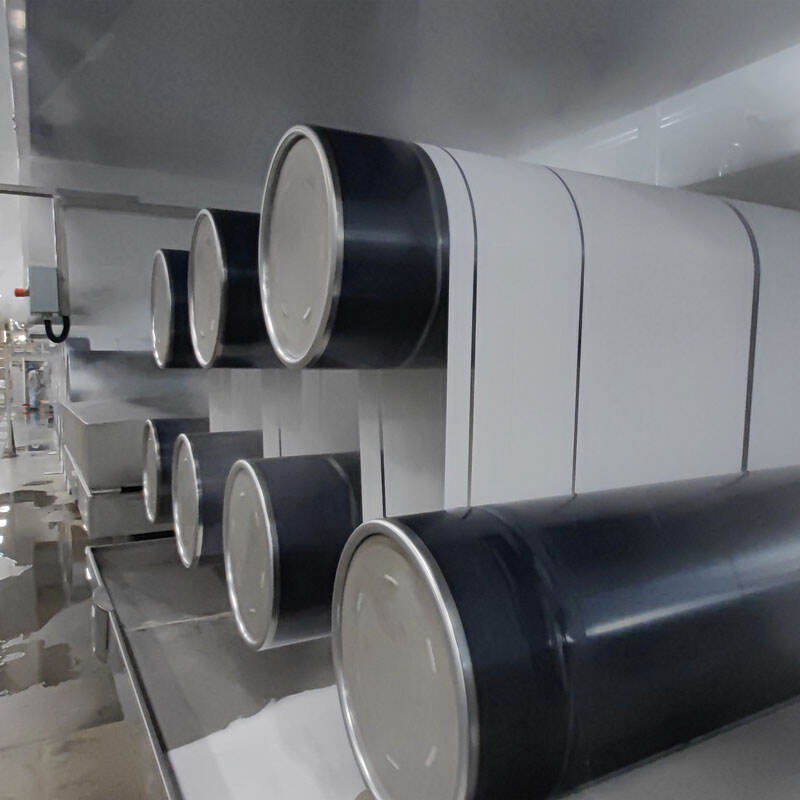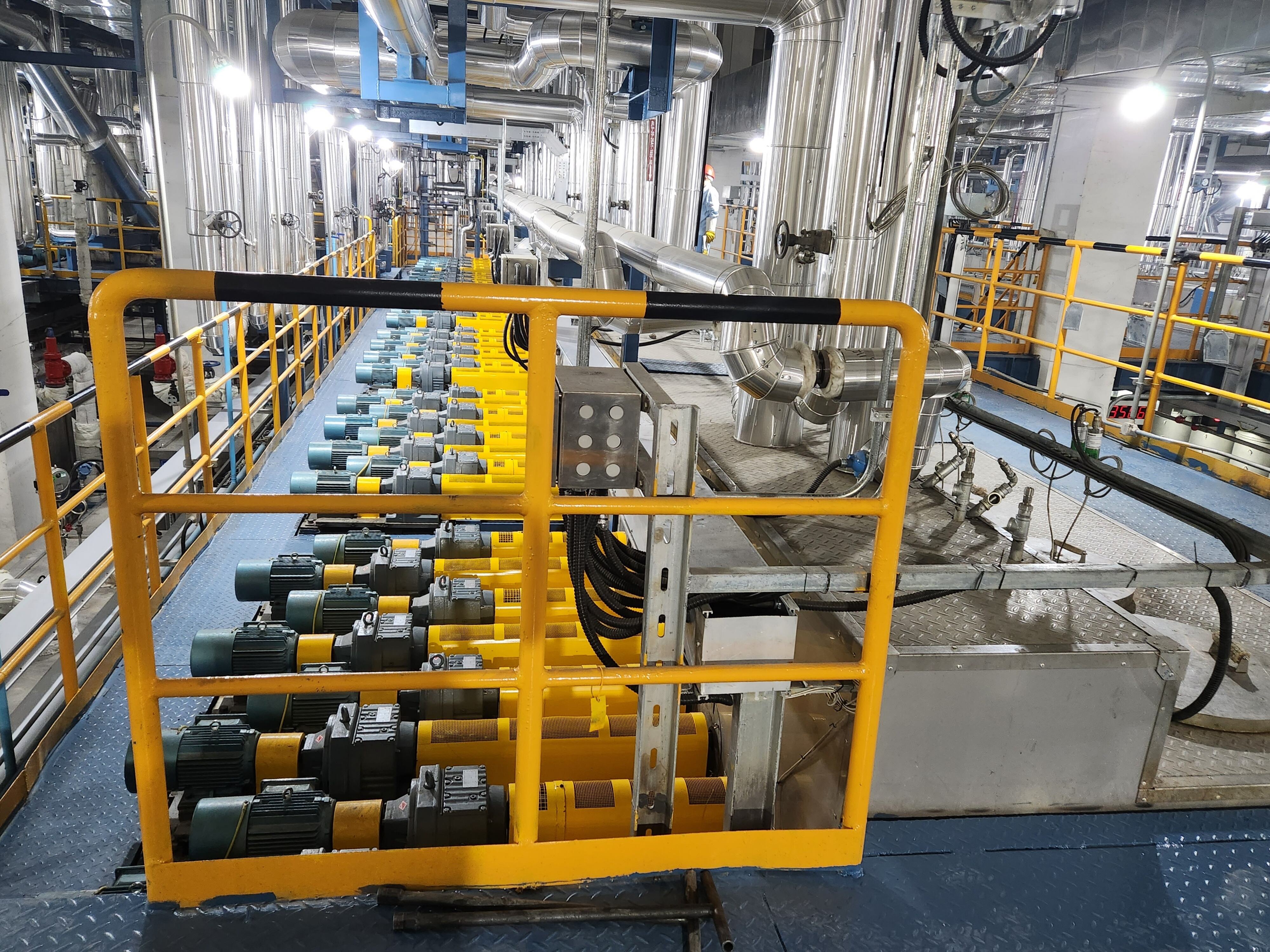Polyester staple fibre (PSF) is a key starting material needed for different industries, including textile, non-woven, household textile, and car interior fabric. Due to rapid population and urbanization growth, PSF also has many new uses. This makes PSF Production Line necessary and in high demand for manufacturers. Shenzhen Softgem Technology Co Ltd is a frontrunner in providing innovative industrial solutions. They design and improve PSF Production Line for industries to help maximize productivity and support environmentally friendly practices. This article will outline the importance of PSF Production Line to the industries and the continued industrial growth it encourages.
The global demand for Polyester Staple Fiber (PSF) has been increasing for a variety of reasons—textile manufacturers need it for clothing and home textiles, non-woven enterprises use it for hygiene products and geotextiles, and automotive suppliers need PSF for interior components. On the production side, outdated production methods lead to supply shortages and delayed order fulfillment. The psf production line remediates this issue, as it is capable of carrying out large-scale and efficient production. Modern psf production lines operate interconnected systems capable of producing anywhere from 80 to 100 tons of PSF a day, which is 3-5 times the output of traditional standalone machines. The automated systems are especially advantageous for manufacturers during peak season such as the pre-holidays when large orders need to be filled within a short period and PSF is required continuously during production. The optimized psf production line at Shenzhen Softgem further facilitates these systems by supporting 24/7 uninterrupted work to increase the yearly output PSF. The global demand for PSF is estimated to grow by 5-7% every year and the production lines are the only viable option capable of meeting that demand.

Ensuring quality PSF is critical to any market because low quality PSF damages end products such as non-wovens and leak fabric and ultimately ruins the brand reputation. Manual production of PSF also results in varied PSF quality in terms of thickness, strength and purity. However, the production line PSF helps avoid this problem as a result of its integrated intelligent control and real time monitoring. Each and every stage of the production line from PET chip melting to fiber cutting is automated, thus improving efficiency. There is a system of temperature, tension and laser sensors that control overheating and underheating of melting PET and maintain uniform fiber strength and impurity removal. The PSF production line from Shenzhen achieves a product qualification rate of more than 98% compared to the 85-90% rate which is the industry average. This is especially important for industries such as medical non-wovens and automotive suppliers which have high industry standards and require PSF that contains stable antibacterial properties and PSF that meets high temperature resistance standards respectively. Quality control in the production line PSF ensures that the PSF produced exceeds industry standards thus maintaining industry reputation.
Cost control is a key challenge for today’s manufacturers, and fully automated psf production lines help lower costs across the board. Traditional PSF production lines have high costs because they are labor intensive, energy inefficient, and generate a lot of waste. Since fully automated psf production lines reduce the need for labor by 70-80% (1 operator can supervise 2-3 production lines), labor costs are a lot lower and less capital is required for production. The automated psf production lines have energy recovery systems which reduce energy costs further by 25-35% every month and help minimize waste during production. The system scrap rate is reduced to 2-3% compared to 8-12% of the traditional production method. For instance, PSF production lines save medium scale PSF factories China 500,000 - 1,000,000 yuan every year on raw material and energy costs. Since costs are lower the psf production line enables manufacturers to be globally competitive on price, an essential benefit in today’s oversaturated market.psf production lines takes a step towards sustainability to meet eco friendly global goals

With most customers focusing on the sustainability initiatives of a business, there is a greater need to implement eco friendly practices within production lines. Traditional PSF production methods utilize a lot of virgin PET (plastic made from fossil fuels), produce a lot of waste, and contribute to fossil fuel waste. The psf production line uses waste more effectively and sustainably. It is the most advanced production line in the industry. It uses recycled PET plastic (waste plastic bottles, post-consumer textile scraps) to produce recycled PSF. It diverts plastic from landfills and reduces the use of virgin materials. This production line reduces fossil fuel waste by recycling 50,000-100,000 tons of plastic waste every year. It reduces carbon emissions 20-30% from traditional methods by saving energy, (heat recovery, variable frequency motors) by lowering carbon emissions. Shenzhen Softgem's psf production line meets international environmental standards like ISO 14001, and assists customers in attaining their carbon reduction goals. For most industries looking to construct eco-friendly brands (i.e. fast-fashion companies, hygiene product manufacturers), the psf production line is the most reliable to meet consumer sustainability goals and expectations.
Industries today encounter pressure from all sides. Consumers seek customized, tailored products, and trends shift quickly. As with seasonal design textiles or applications for new non-woven products, trends change even within a season. A traditional PSF production line takes 4-5 hours to switch to different production versions and is, therefore, inherently inflexible. Today’s psf production lines make use of quick-adjustments and modular designs to minimize changeover downtime. With the psf production line made by Shenzhen Softgem, manufacturers can change specifications within an hour, which is a game changer for small-scale, multi-variety orders, say, for textiles. In peak summer months, the textile factory can rapidly change from summer clothing production, which requires 1.5D PSF, to 5D PSF for winter coat production. This production line still allows PSF to be customized for tailored niche applications like flame retardant or antibacterial PSF. This enables markets with medical textiles or fire resistant home furnishings. As a manufacturer, this type of flexibility allows you to take on high volume and niche orders, shifting production quickly to grab high demand items. That is, you avoid overstock of out-of-date and seizing new opportunities. Without this ability, PSF production lines would face declining relevance, and a loss of customers, or outright market share.
PSF production lines have lost their relevance for flexibility within production lines. Using the psf production line from Shenzhen Softgem, shifts in production take less an hour. Seasonally, textile factories can shift from summer collections to winter collections in the same production line for PSF. By flame-retardant and antibacterial PSF production lines, manufacturers can serve high volume niche markets, like medical textiles, or fire-resistant home furnishings. Flexibility on high volume orders or guarding low volume orders allows balance. This line of textile production enables shift with seasonable products easily and leaves ample production to grasp new trends. This is no small design. This ability of quick change is not without design. Modern production uses quick-adjust and modular designing to reduce downtime.
 Hot News
Hot News2024-07-25
2024-07-25
2024-07-25